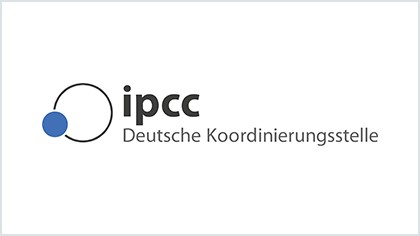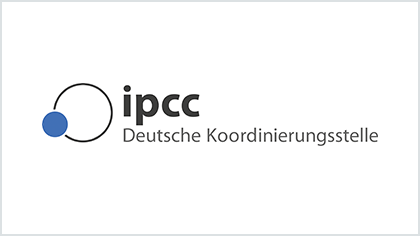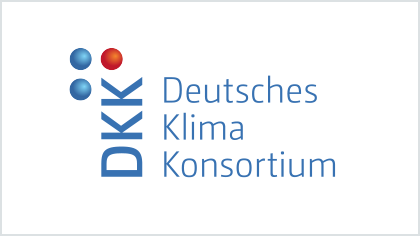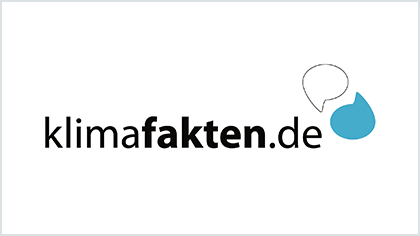



That the climate is changing has been scientifically proven: For example, the global mean temperature has risen by about 1.1°C compared to pre-industrial times, and sea level has risen by almost 4 millimeters. Nine of the ten warmest years in Germany were in the last 20 years.
The exact causes and connections between these changes are increasingly the subject of scientific and public debate. It is undisputed that the man-made greenhouse effect is massively accelerating climate change.
On this page you will find links to scientifically valid basic and background information on climate change, its causes and consequences. This knowledge provides an overview of the current state of research. We also provide an overview of tools and methods used by climate researchers to arrive at their findings.


All over the world, scientists are researching climate change and its effects on nature and mankind. In order to bundle the results and clarify what threat is posed by global warming and whether action must be taken, the United Nations Environment Program (UNEP) and the World Meteorological Organization (WMO) have founded the Intergovernmental Panel on Climate Change (IPCC).
On its behalf, leading experts have been compiling and evaluating the latest knowledge on climate change for over 30 years from a scientific perspective (that is, the IPCC does not conduct research itself). It publishes assessment reports, the IPCC Assessment Reports, every six to seven years. The next, Sixth IPCC Assessment Report is due to appear in 2021 / 2022 - in three volumes and a comprehensive synthesis report. In addition to the Assessment Reports, IPCC Special Reports are published regularly.
In all of these reports, hundreds of scientists present the scientific basis, the consequences and risks of climate change and also point out ways in which we can mitigate and adapt to global warming.
The IPCC is thus both a scientific body and an intergovernmental committee. It provides policy-makers with the basis for science-based decisions and highlights different options for action and their implications - without, however, making any political recommendations.
The IPCC is based in Geneva. At present, 195 countries are members of the Intergovernmental Panel on Climate Change, which is composed of
Many Helmholtz scientists are also involved in the work of the IPCC. On the one hand, their research findings are incorporated into the reports. On the other hand, they contribute to the preparation of the reports as authors. For example, Prof. Dr. Hans-Otto Pörtner from the Alfred Wegener Institute for Polar and Marine Research (AWI) was one of the co-ordinating lead authors for the volume on impacts, adaptation and vulnerability to climate change of the IPCC's Fifth Assessment Report, which was adopted in Yokohama in 2014. In the current reporting cycle since 2015, Prof. Hans-Otto Pörtner is one of the two chairs of the working group on impacts, adaptation and vulnerability. The only German Coordinating Lead Author of the Special Report "1.5 °C Global Warming" was Prof. Dr. Daniela Jacob, Director of the Climate Service Center Germany, GERICS, an institution of the Helmholtz Centre Geesthacht.
All reports are available at: www.ipcc.ch (in English). The German IPCC Coordination Unit offers German summaries at www.de-ipcc.de. It is the point of contact for science, government, authorities, the public and the media for questions about the IPCC. It promotes the transfer of knowledge between research and climate policy and advises the Federal Environment Ministry (BMU) and the Federal Ministry of Education and Research (BMBF) on IPCC issues well as on questions relating to climate science in the negotiations of the UNFCCC. It also promotes the transfer of climate knowledge.


As Germany's central environmental authority, the Federal Environment Agency (UBA) ensures a healthy environment in which people can live as protected as possible from harmful environmental effects such as pollutants in the air or water. From waste prevention and climate protection to the approval of plant protection products, UBA collects data on the state of the environment, investigates interrelationships, and makes forecasts for the future. It uses this knowledge to advise the Federal Government and inform the public on environmental issues. UBA also puts environmental laws into practice, for example, the authorization of chemicals, pharmaceuticals, and plant protection products.
On its website the Federal Environment Agency has compiled information and statistics on topics such as climate change, greenhouse gas emissions, greenhouse gases, climate impacts, and climate protection.


Under the motto 'Research for Society, Economy and Environment', the German Climate Consortium (DKK) brings together renowned research institutions with the aim of developing action-oriented results from climate research for society, economy and environment. Central questions are how mankind causes climate change, how it can react to it and which facts and instruments can support the necessary decisions in economic and environmental policy. A major concern of the DKK is the dialogue with politics, business and the public.
On its website, the DKK has published an FAQ, in which the Intergovernmental Panel on Climate Change answers the 29 most frequently asked questions on climate change.


Climate change and climate protection present our society with great challenges and difficult decisions. In order to constructively debate on the best ways to protect the climate, the basic facts must be right. To this end, klimafakten.de prepares the often very complex results of climate research in an understandable way and explains what they mean for individual parts of the economy and society. In order to turn knowledge into action, the online platform focuses on two ways to promote the social debate on climate change and climate protection: On the one hand, it provides news from research and on the question of how climate communication can be successful. On the other hand, the platform documents particularly successful practical examples, useful handouts and introduces relevant actors and institutions.
In Zusammenarbeit mit unserem Partner klimafakten.de präsentieren wir Ihnen hier wichtige Fakten zum aktuellen Stand der Klimaforschung – und zeigen, welche Argumente irreführende Behauptungen widerlegen. Die Beiträge beruhen großenteils auf den Sachstandsberichten des Weltklimarats (IPCC) und werden fortlaufend aktualisiert.